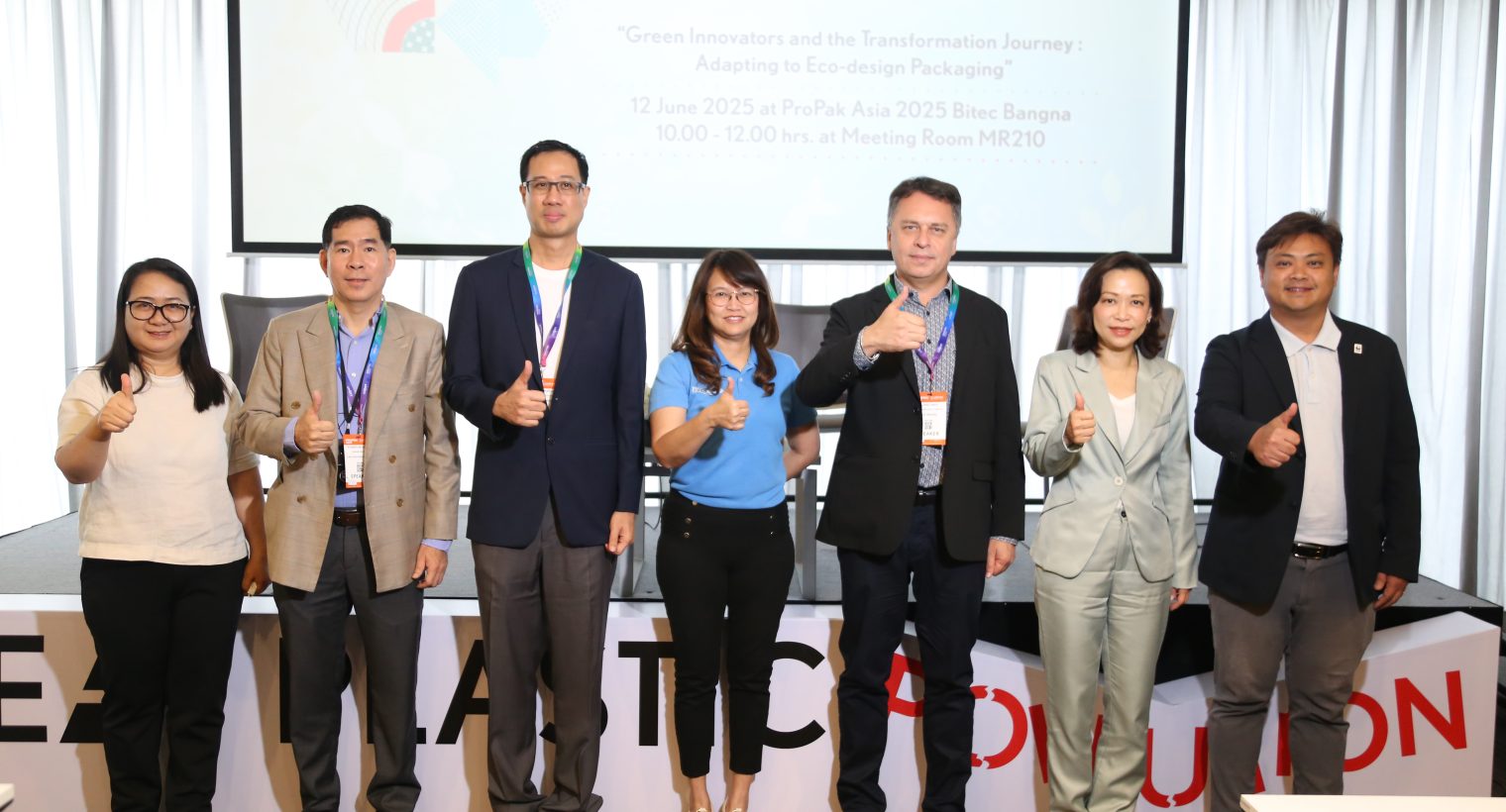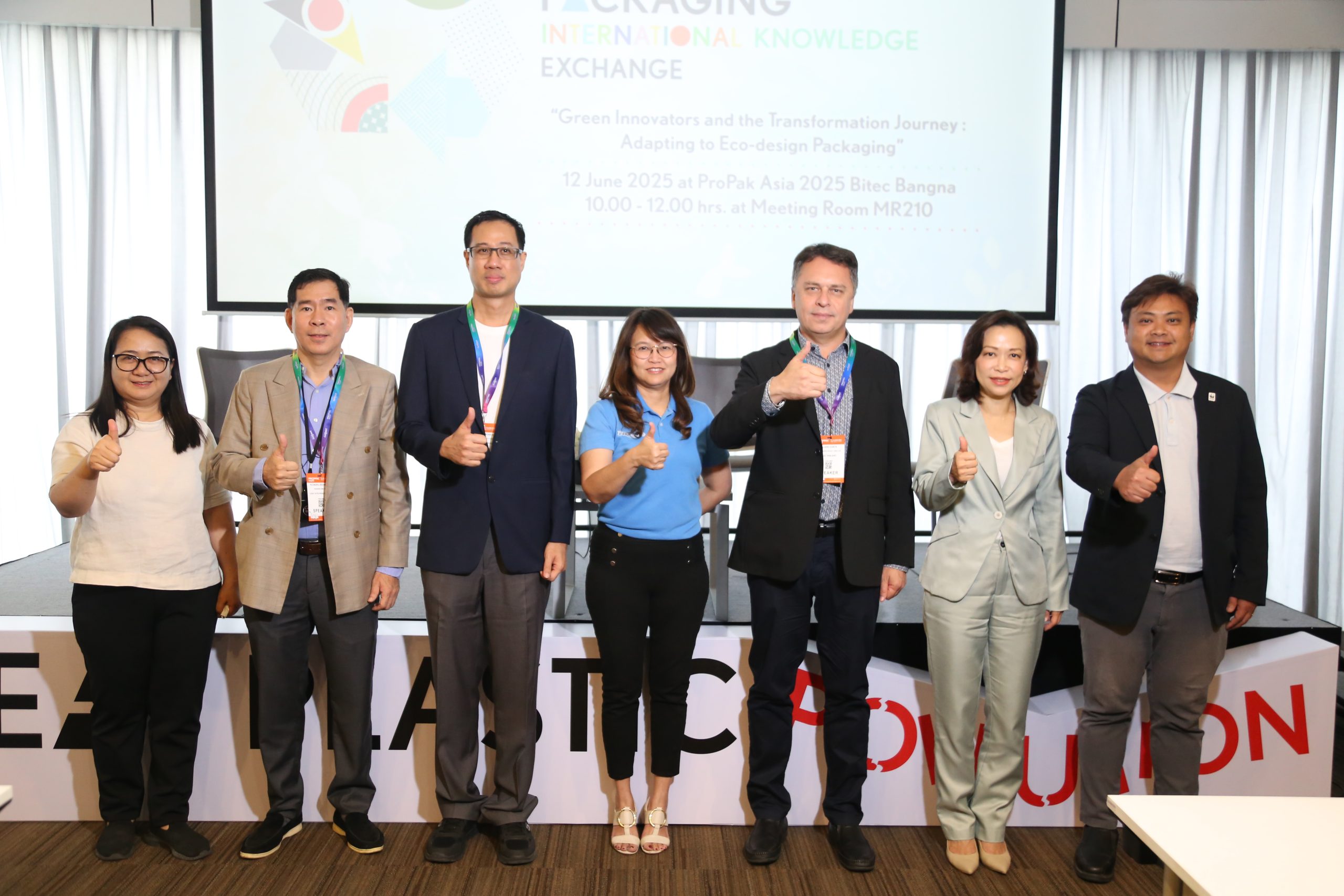
Hub of Talents: Sustainable Materials for Circular Economy (HubSustainMat) and PETROMAT, in collaboration with GIZ Thailand, hosted an international knowledge exchange titled “Green Innovators and the Transformation Journey: Adapting to Eco-Design Packaging” on June 12, 2025 at BITEC Bangna, Bangkok, alongside ProPak Asia 2025.
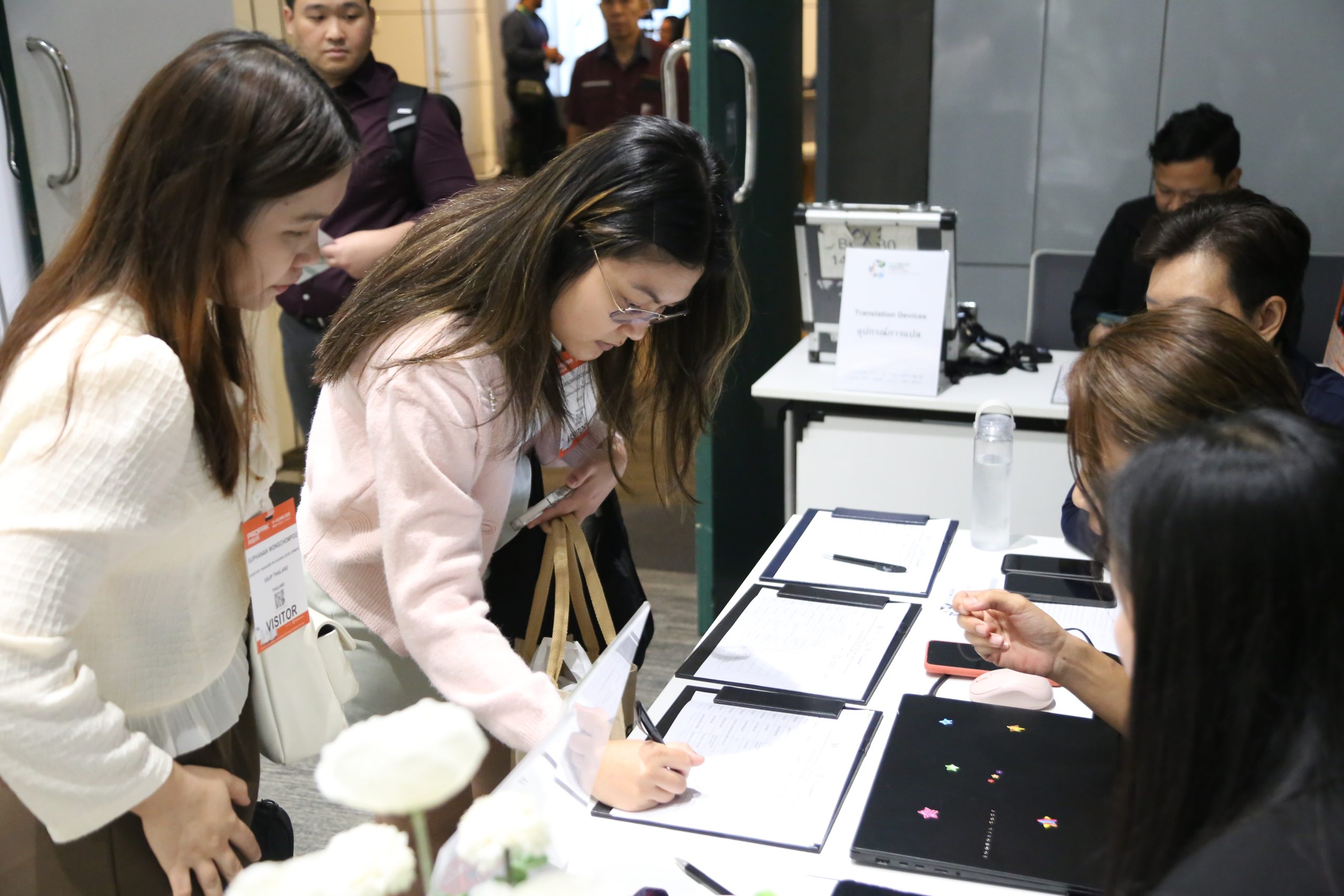
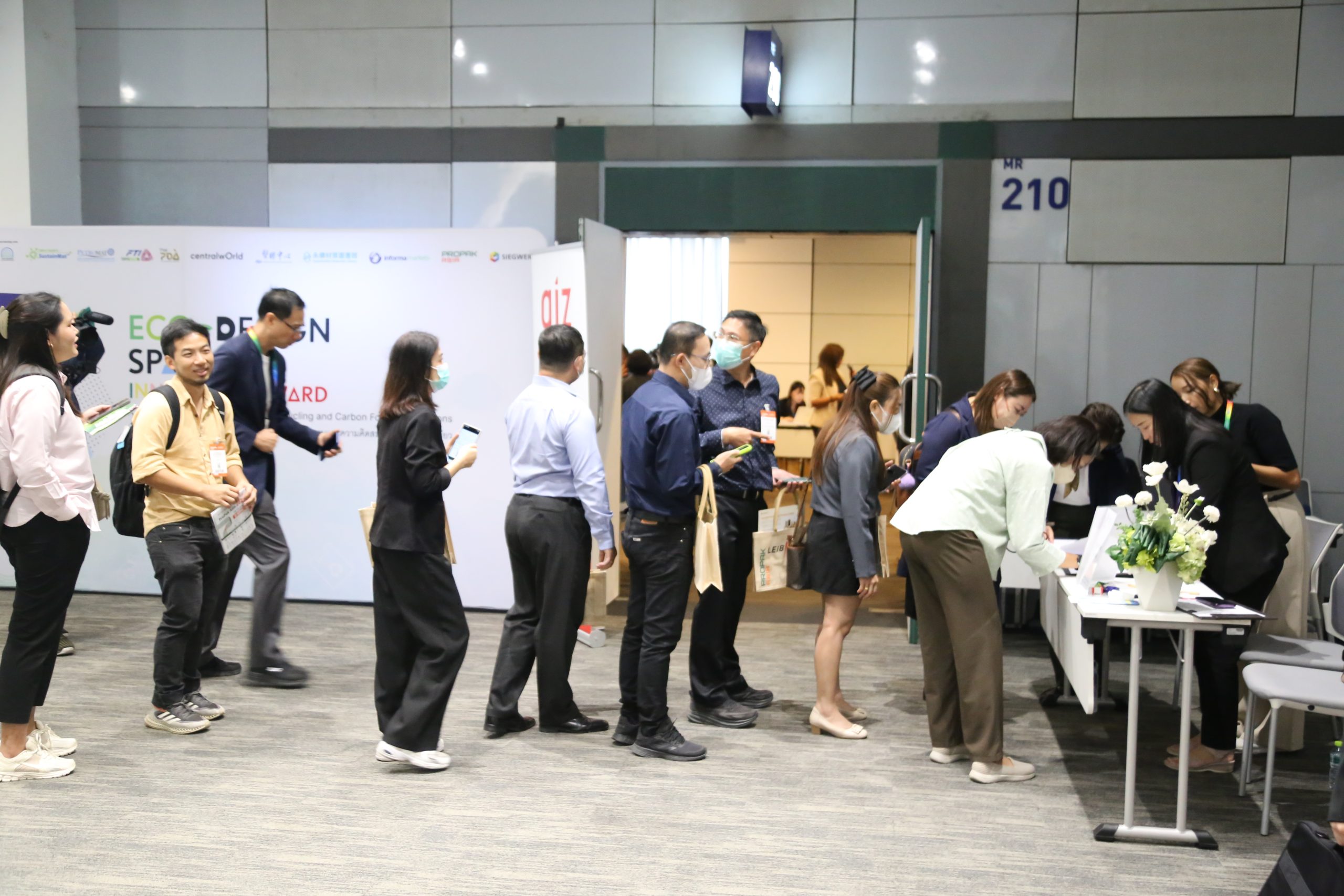
The session was part of the Marine Litter Prevention through Reduction, Sustainable Design, and Recycling of Plastic Packaging (MA-RE-DESIGN) project, led by GIZ Thailand in cooperation with Thailand’s Pollution Control Department (PCD) and international partners.
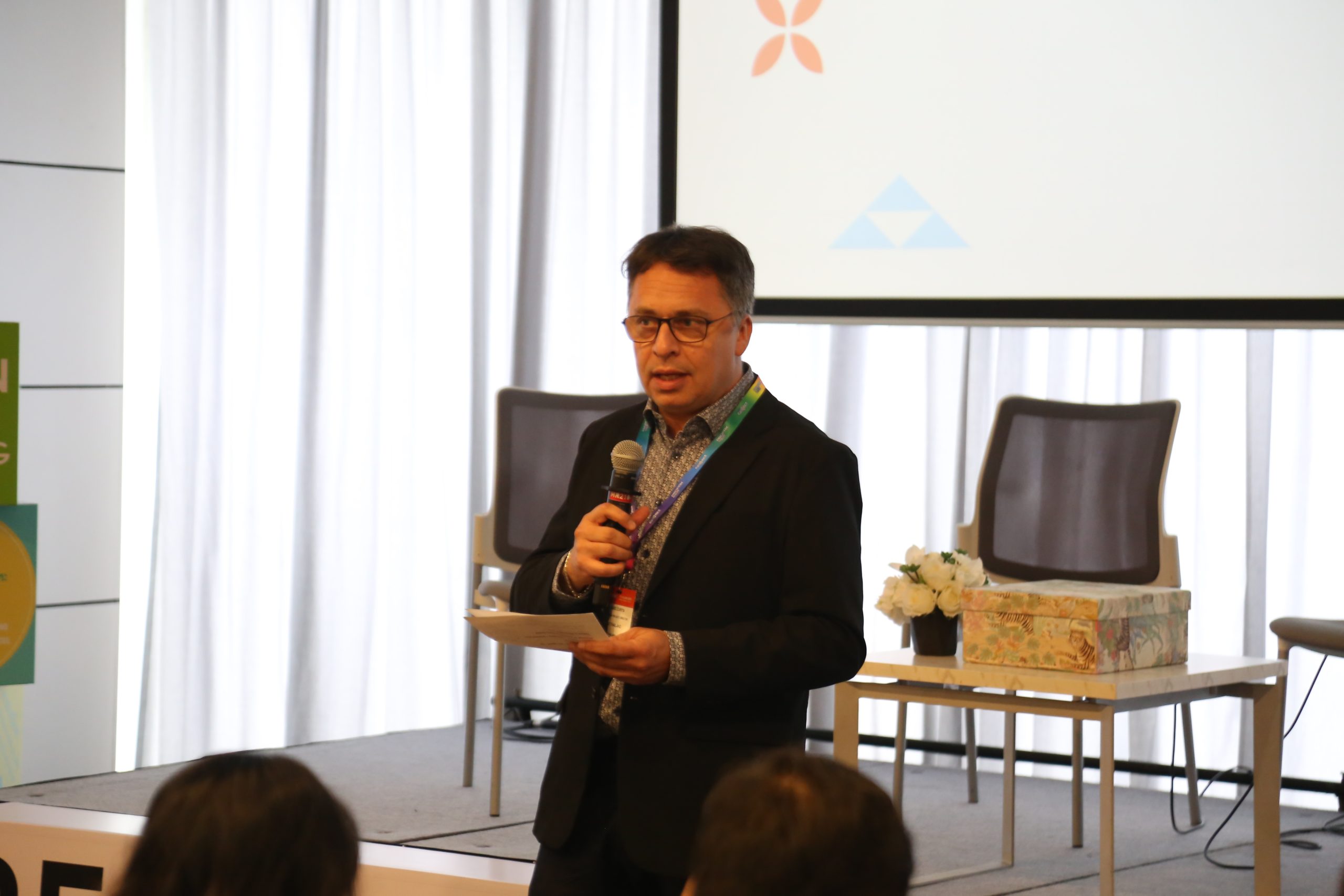
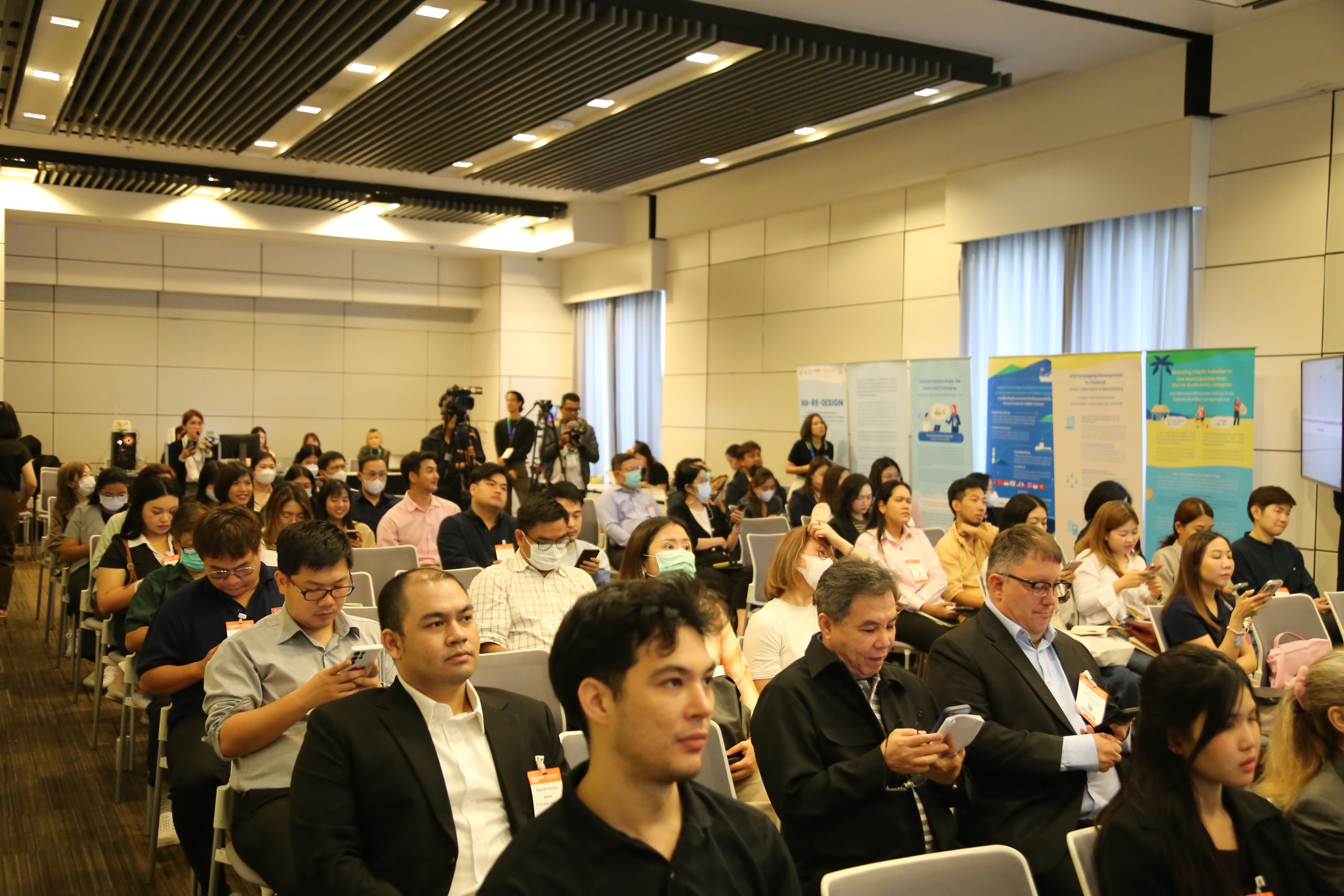
Opening remarks were delivered by Prof. Hathaikarn Manuspiya, Head of HubSustainMat, and Mr. Alvaro Zurita, Project Director of MA-RE-DESIGN at GIZ Thailand. They welcomed over 125 participants, including representatives from the MA-RE-DESIGN consortium, the PCD, SMEs, startups, researchers, students, and finalists and winners of the Eco-design Sparking Innovation Award.
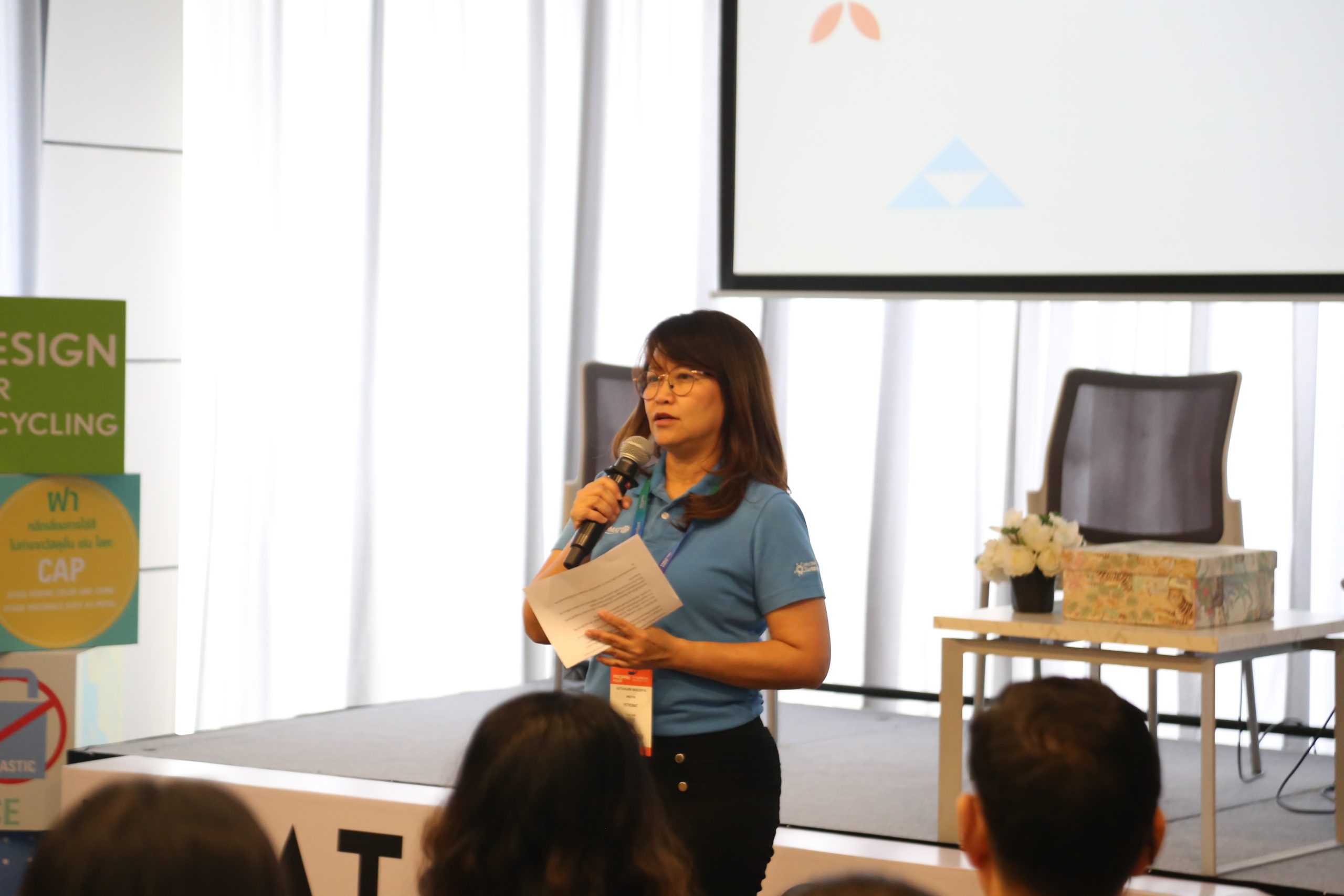
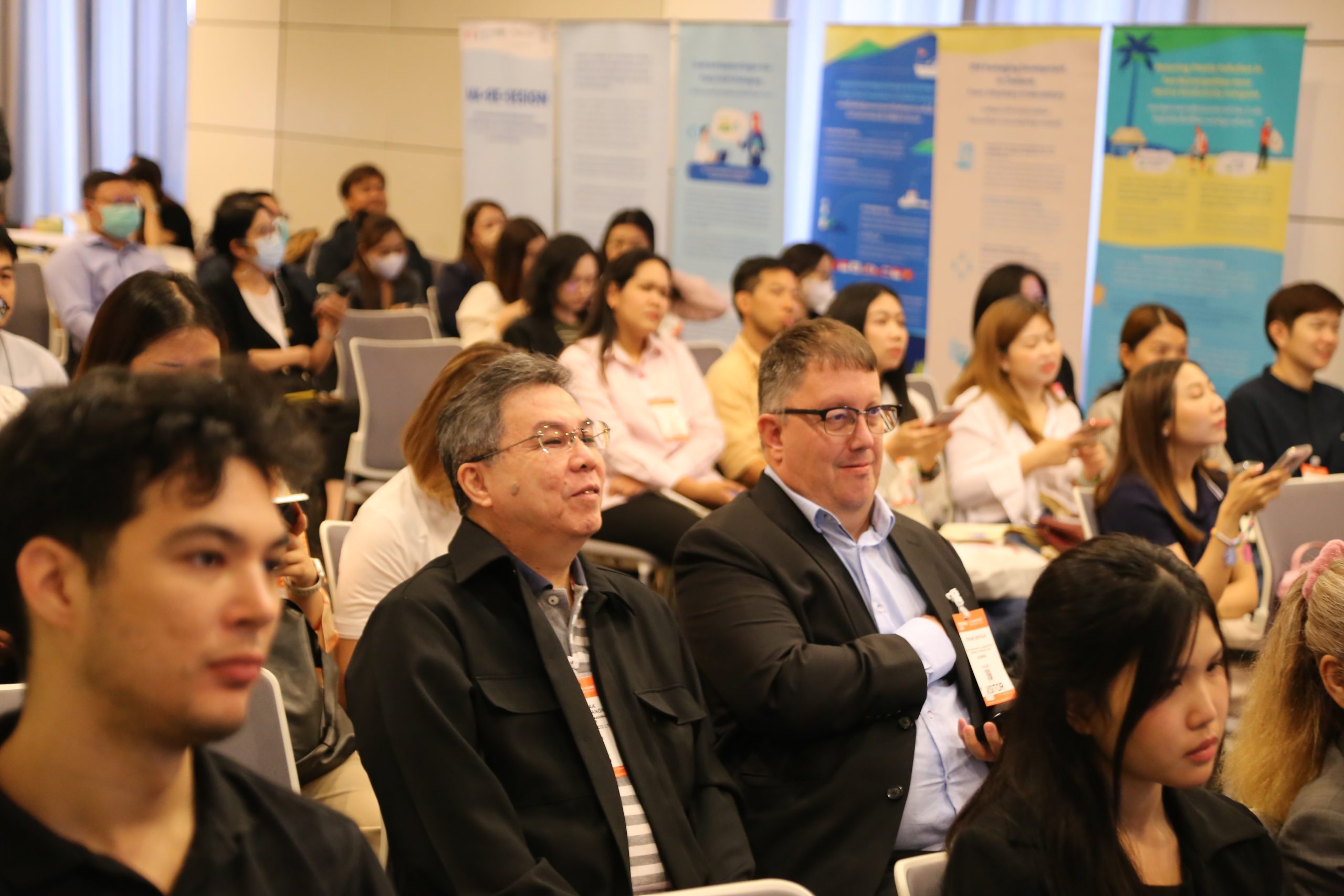
The knowledge exchange began with insights from Ms. Sarah Julie Otto, Researcher at Oeko-Institut e.V., Germany, who highlighted the country’s regulatory frameworks and practices in sustainable packaging—including reusable systems for food containers and legal requirements for minimum recycled content. In Germany, reuse is the top priority, requiring careful planning to maximize environmental benefits across the entire packaging life cycle—from raw material sourcing and reduced transportation to extended packaging use, lower energy consumption, and efficient end-of-life management.
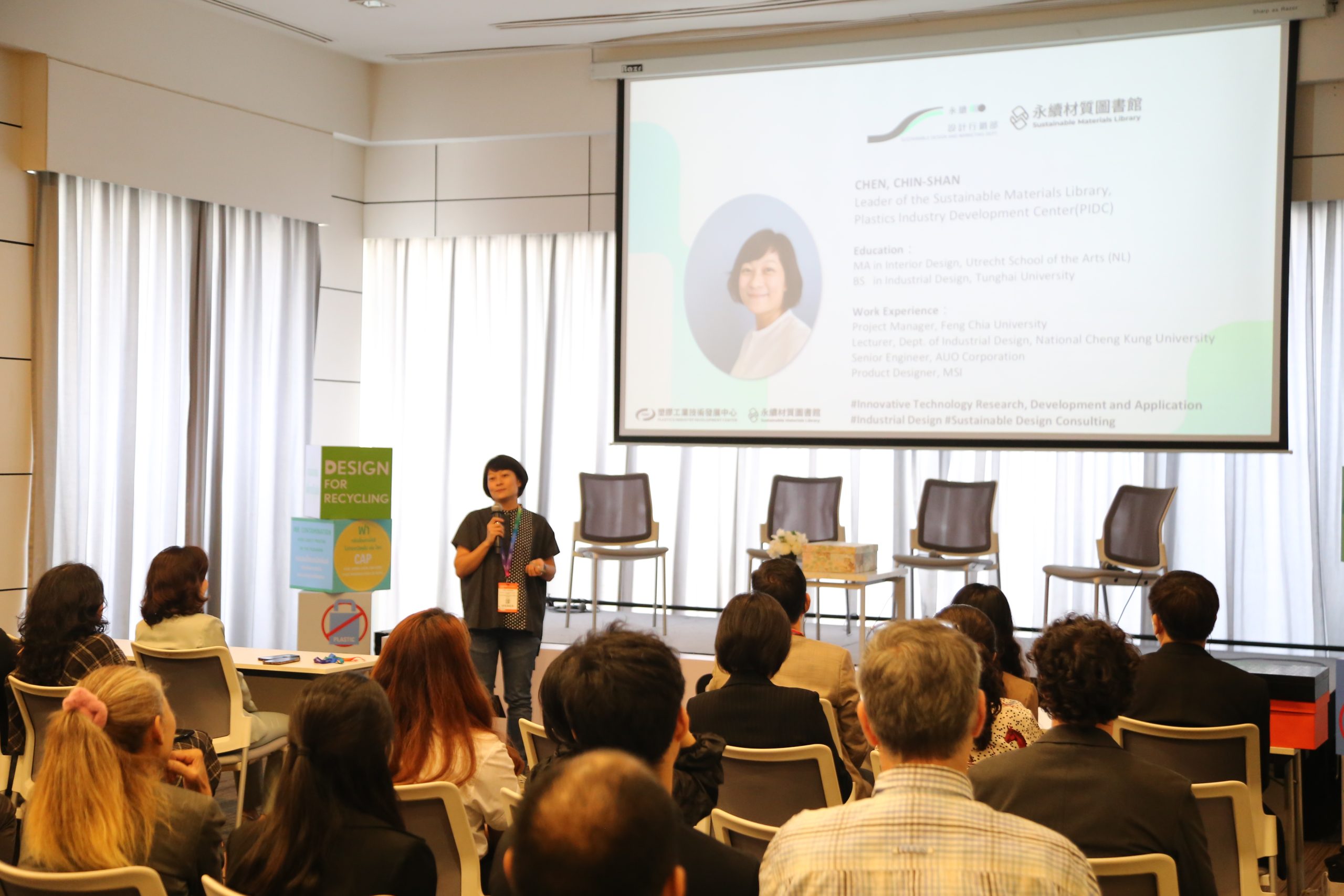
Then, Ms. Chin-Shan Chen, Leader of the Sustainable Materials Library at Taiwan’s Plastics Industry Development Center (PIDC), presented Taiwan’s approach to sustainable packaging. She emphasized close collaboration between industry and government to reduce unnecessary plastics, strengthen green supply chains, promote closed-loop systems, and drive innovations—such as transforming ocean waste into valuable products. Another key strategy is assessing the full life cycle of plastics—from raw material extraction to disposal—to identify opportunities for circularity and environmental gains.
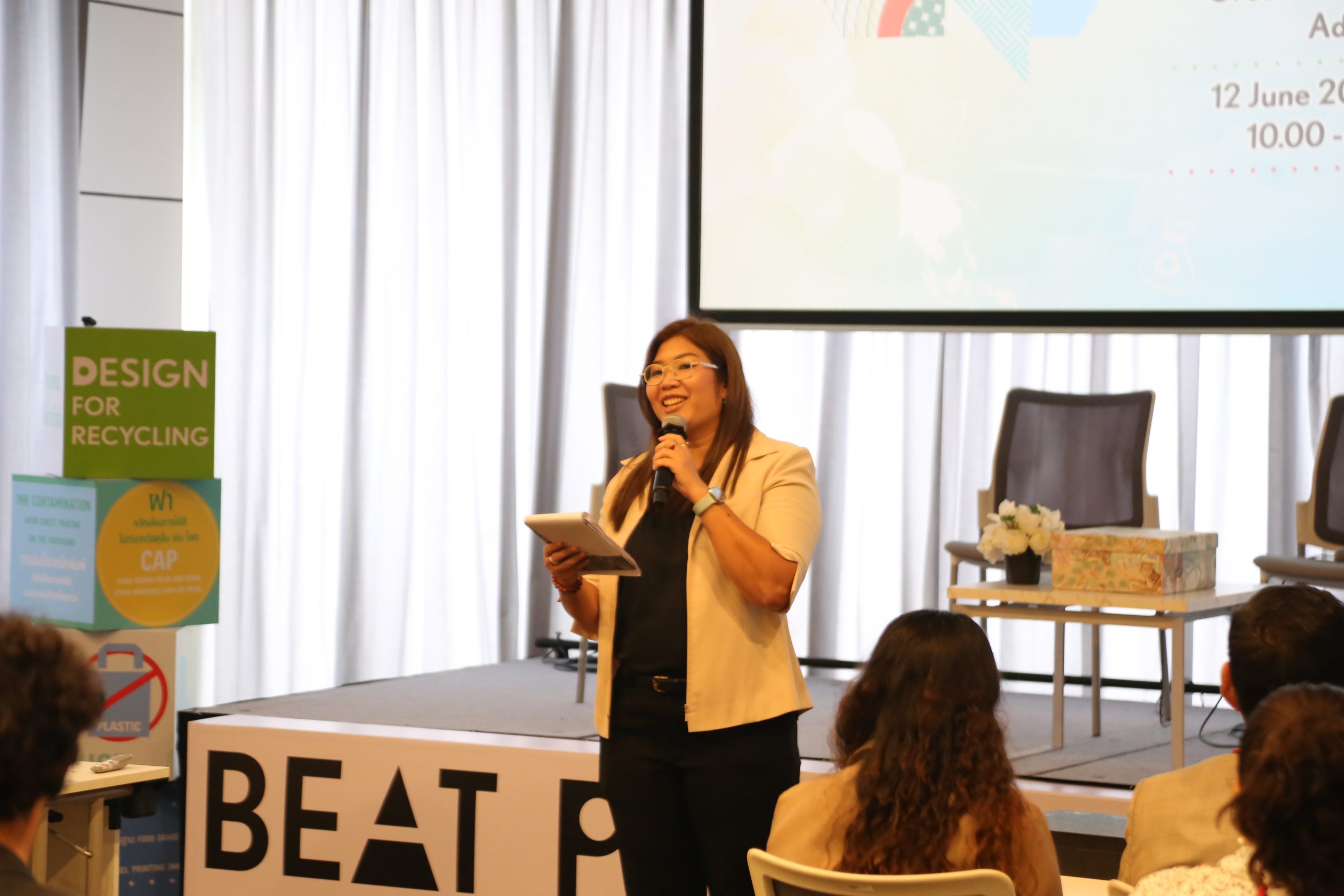
The event concluded with a dynamic panel discussion featuring Mr. Roongroj Boontarak (Managing Director, A Best Inter Products), Mr. Varoon Varanyanond (Industrial Partnership Advisor, PETROMAT), and Ms. Salinla Seehaphan (Board Member, Thailand Institute of Packaging and Recycling Management for Sustainable Environment). The panel explored success factors and practical challenges in eco-design, from Design for Recycling (D4R) and Carbon Footprint of Products (CFP) to Thailand’s forthcoming Extended Producer Responsibility (EPR) regulations. Further, the panel also reflected on how insights from the earlier speakers could guide the increased use of life cycle assessment (LCA) in shaping Thailand’s future packaging policies and practices.
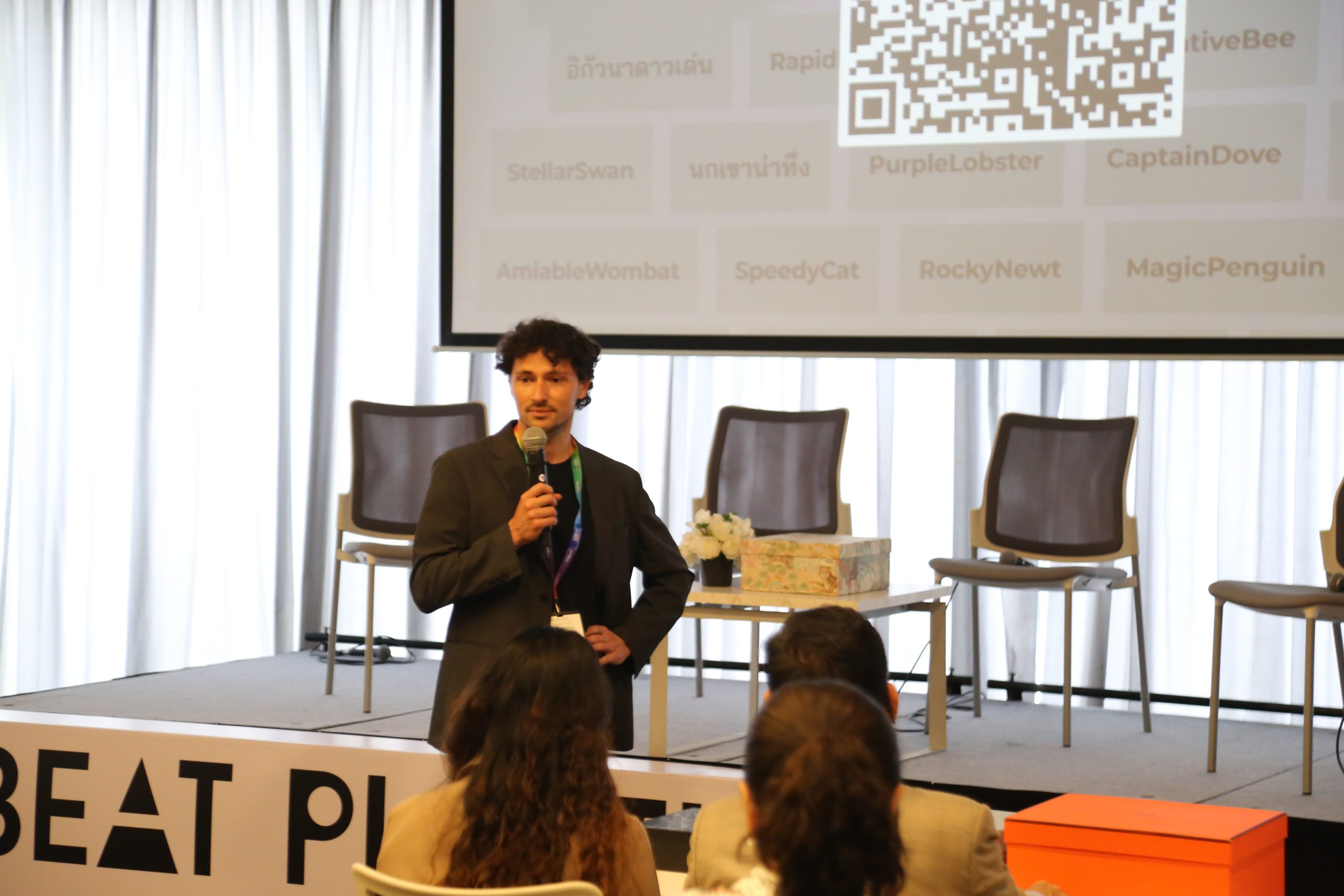
This forum underscored the critical role of international collaboration in advancing sustainable packaging. It served as a valuable platform for emerging innovators, SMEs, and startups to explore how eco-design principles can be transformed into practical solutions that meet environmental, regulatory, and market demands—paving the way for a more sustainable packaging future in Thailand.


